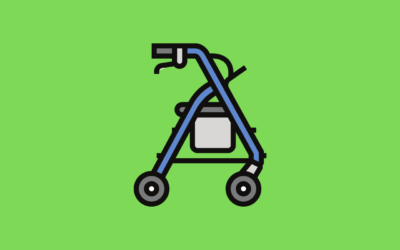Quick Answers
Emergency Response: Personal alarms are crucial in emergencies, signaling medical issues, deterring attackers, and calling for help during natural disasters.
Everyday Safety: Incorporate personal alarms into daily routines for added safety during activities like walking at night, traveling to new places, or engaging in outdoor exercises.
Self-Defence Tool: Utilize the loud sounds of personal alarms to deter assailants, shock attackers, and attract attention, enhancing your ability to defend yourself effectively.
Even though personal alarms are specialised equipment for personal safety, are you familiar with the proper way to utilise them? Some of them are included in this article. These include protecting oneself in an emergency, ensuring safety in day-to-day life, and engaging in self-defence. We will assist in making the most of your personal alarms and protect your safety no matter the situation.
Top Personal Alarms
Emergency Situations
Personal alarms are an effective tool to have on hand in an emergency since they are designed to be heard from a considerable distance and rapidly catch the user’s attention. It is possible to utilise them to alert people to potential dangers and to call for aid in the case of an emergency, such as the following:
- Emergencies of a medical nature: You may use a personal alarm to inform others of a medical emergency, such as a heart attack or a stroke. It can also help you get the appropriate medical care when it comes. Examples of such emergencies include a heart attack and a stroke.
- Attacks from a personal attacker: An individual may utilise a personal alarm to deter an attacker and notify others of the potential danger, which raises the possibility that aid will come in a timely way.
- Catastrophes caused by nature: A personal alarm may be used to call for help and send out a distress signal in the case of a natural disaster such as a storm or an earthquake.
Everyday Safety
you may also use personal alarms for day-to-day safety applications, such as the following:
- Walking alone at night: Having the reassurance of a personal alarm when walking alone at night may provide you peace of mind and serve as a deterrent to would-be assailants.
- When travelling: a personal alarm is an efficient tool for ensuring safety, particularly in new or hazardous places.
- Running or cycling: In an accident or other urgent situation while running or cycling, you can use a personal alarm to summon assistance and signal for aid.
Self-Defence
The following are some of the ways that you might use personal alarms in the course of self-defence:
- An assailant may be deterred by the loud sounds of a personal alarm, which can also shock an attacker and allow you to flee the situation.
- Attract attention: Using a personal alarm is one way to increase the likelihood that you will get assistance by attracting attention to yourself and alerting others to your predicament.
Tips for Using Personal Alarms Effectively
To use personal alarms effectively, consider the following tips:
- Keep your personal alarm easily accessible: Make sure your personal alarm is easily accessible, such as on a keychain or in a pocket, so you can quickly activate it in an emergency.
- Practice activating your personal alarm: Practise activating your alarm so you can do it quickly and easily in an emergency.
- Be aware of your surroundings: Be mindful of your surroundings, trust your instincts and be prepared to use your personal alarm if you feel unsafe.
Summary Of What Should A Personal Alarm Be Used For
In conclusion, personal alarms are a potent instrument for personal safety that you may employ in various contexts, including self-defence, protection from common hazards, and emergency scenarios. You can protect yourself from potential danger if you are familiar with the many applications of personal alarms if you practise setting them off, and if you are alert to your surroundings.










